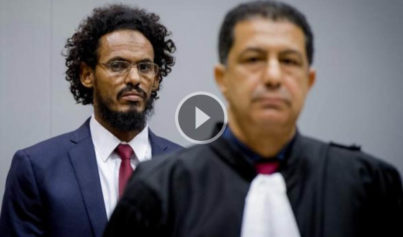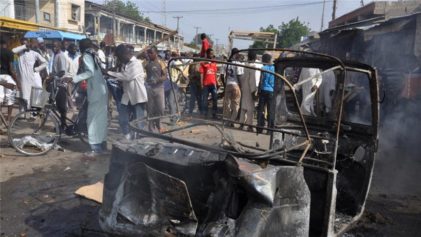With France leading the way with 500 troops, the multinational military campaign to halt the southern advance of Islamist militants in Mali is shaping up to be an all-out war, particularly because the French soldiers say they were surprised by the level of equipment and training of the insurgents.
It is a measure of the potential danger and reach of the Islamists that France felt the need to conduct such an aggressive military campaign in its former colony in Africa. France claims that if the militants were left unchecked they would overtake the capital of Bamako and fighting might spread to other countries.
French Foreign Minister Laurent Fabius assured his nation that France’s involvement in the campaign will last “a matter of weeks,” but considering the skill of the insurgents and the difficulty of reaching them in the rough terrain of the Sahara in northern Mali, that might be wishful thinking.
The rebels have killed at least 11 Malian soldiers and shot down at least one French helicopter, killing a French pilot.
“What has really struck us is how up-to-date their equipment is, and the way they’ve been trained to use it,” a French presidential official told the news service Agence France-Presse.
“At the start, we thought they would be just a load of guys with guns driving about in their pick-ups, but the reality is that they are well-trained, well-equipped and well-armed. From Libya they have got hold of a lot of up-to-date, sophisticated equipment, which is much more robust and effective than we could have imagined.”
On Monday, Mali Foreign Minister Tieman Hubert Coulibaly said the goal of the operation was to drive out the fighters, not just halt their push south.
“I think in the last four days these jihadists have suffered heavy losses with more than 100 deaths,” Coulibaly told BFM-TV after meeting with Fabius.
“We cannot simply push them back, we have to chase them away,” Coulibaly said. “We simply now cannot allow a time out for these forces to reorganize.”
French President Francois Hollande met with Nigerian leader Goodluck Jonathan on Monday to seek more assistance. Nigeria is expected to lead the intervention and provide around 600 men. Burkino Faso, Niger, Senegal and Togo have also pledged 500 troops each. Benin and Ghana have also promised troops.
French warplanes bombed the town of Gao in eastern Mali on Sunday, extending their raids deep into rebel territory. The mayor of Gao, Sadou Arouna Diallo, who lives in Bamako, thanked the French government and told the BBC: “The bombings are very well targeted… the residents are very satisfied.”
In Gao, a local confirmed the strikes.
“I cannot give you the precise figure about the casualties,” he said. “But I can tell you there has been extensive damage and a huge loss of life. It’s difficult to say who’s in control in Gao now.”
The militants also fled Timbuktu, leaving major long-term damage after destroying world heritage sites.
Speaking to French media, Fabius said there was no similarity between the Mali mission and the protracted Western war in Afghanistan, which has lasted more than 11 years, since shortly after the 9/11 terrorist strikes in the U.S.
“Later on, we can come as back-up, but we have no intention of staying forever,” he said.
Fabius said if France had not intervened and had let insurgents reach Bamako, it would have had “appalling consequences.”
But the potential risk of the mission to France was illustrated by the statements today of Abou Dardar, a spokesman for the al-Qaida-linked Mujao, who told AFP: “France has attacked Islam. We will strike at the heart of France.”
He said they would attack France “everywhere. In Bamako, in Africa and in Europe.”
In response, the French government has stepped up security across France. Rebel groups in Africa are holding several French hostages and have threatened reprisals against them and other French targets.


